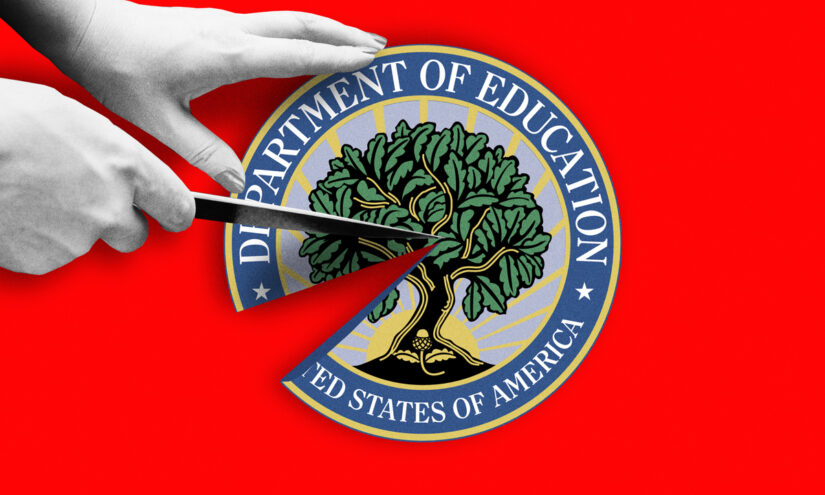Reflecting on the tenets that shape our educational practices is fundamental for …
Project 2025 Plan to Reduce Education Department and Implement Conservative K-12 Agenda under Trump Administration
Jennifer Livingstone

Under a potential second Trump term, the Republican agenda aims to significantly alter the federal bureaucracy, particularly in the realm of education. The vision involves portraying the U.S. government as a protector of parents’ rights and transforming long-standing programs to promote school choice.
The comprehensive plan called “Mandate for Leadership,” published by Project 2025, mirrors the intricate narratives found in lengthy Harry Potter novels. Comprising 43 detailed pages, the education segment of the plan proposes bold changes, such as abolishing Title I grants for high-poverty schools and revising accreditation requirements under the Higher Education Act.
The overarching objective involves dismantling the Department of Education, redistributing its functions to states or other entities. However, achieving this goal might pose a considerable challenge, according to Jack Jennings, a retired Democratic education adviser in the U.S. House of Representatives. Despite the ambitious plans, the strategy outlines a gradual approach to reduce the federal government’s involvement in schools over four years.
The Heritage Foundation’s “Mandate for Leadership,” a cornerstone of conservative policy, spearheads the policy discourse leading up to the Republican National Convention. This document, part of the Project 2025 initiative, follows a legacy of influential policy guidelines issued by Heritage, shaping the agendas of Republican administrations since the Reagan era.
President Trump distanced himself from Project 2025 recently, describing some of its propositions as “ridiculous and abysmal” amid backlash from Democrats and the media. The plan’s alignment with the Republican Party’s official 2024 platform, emphasizing school choice expansion and state authority over education, highlights the shared goals within conservative circles.
Notably authored by Lindsey Burke of the Heritage Foundation, the education section of Mandate advocates for a significant reduction in federal authority. Key proposals include transitioning the Title I grants and special education funding to block grants under the Department of Health and Human Services, allowing families direct use of education savings accounts.
The blueprint further suggests extending education savings accounts (ESAs) to various educational settings, including schools under federal jurisdiction and specialized campuses. It challenges the National Education Association’s privileged standing and urges legal safeguards for parental autonomy in educational matters.
The comprehensive reform agenda outlined in Mandate for Leadership presents a juxtaposition of dismantling existing federal roles and proposing new initiatives. The push to curtail federal interference in education signifies a significant shift in the conservative policy landscape, potentially reshaping the educational framework in the coming years.


